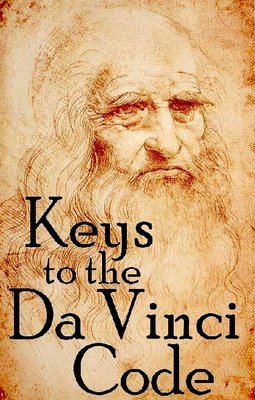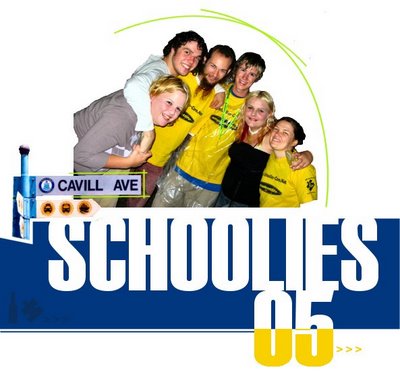Capitals and Full Stops
Capitals and Full Stops
Where do you use capitals and full stops in Matish?
I was being a little silly before when I said that capitals shouldn't be used except in shouting. Here are the proper rules. They go hand in hand with the ones for full stops.
B1. Full stops are only to be used to end sentences.
That is, they are not to be used for things like abbreviations etc.
A horizontal ellipsis (…) might appear to be an exception to this rule, but let's not consider an ellipsis to be defined as multiple full stops. If you drag your mouse over this one (…) you will see that it's just one symbol on it's own. Of course, in typing, you may use multiple full stops to represent an ellipsis if you like, and just not call them "full stops" but "dots" like the dots in a colon, etc.
In the same way, a decimal point might also be seen as an exception and should also not be seen as a full stop. At the moment computers usually use the same character for both, but we don't call it the same thing both times.
B2. Full stops should be used at the end of every sentence that has no question mark, exclamation mark, colon or semicolon.
If you are lazy, you may miss typing a full stop at the end of a paragraph and still call it Matish, but it is "improper", and an unhelpful habit mostly useful for being lazy in MSN etc.
A1. Don't use capitals just because it's the start of a sentence.
A2 Capitalise the first letter of every proper noun. Spell people's names the way they do unless you have their own permission to spell them in Matish.
Other names, such as the names of places, days of the week, etc. should usually be respelled.
The pronoun "I" is not a proper noun, and should not be capitalised just as "him" should not.
You may capitalise pronouns referring to God and still call it Matish, but you don't need to.
A3. Capitalise the first letter of titles and contracted titles.
A4. Capitalise all initials in an acronym.
This goes for all acronyms and initials whether they are proper names or not. So:
This is to distinguish them from letter-words which are NOT written in capitals. Eg. "r" is not the initial of "are" which starts with "a". The letter "r" represents the word "are" as a letter-word, and it is written in lowercase.
With a little common sense you can see how this rule works together with the previous one.
B3. Use the tilde in place of abbreviated endings.
A full stop only comes after the tilde at the end of a sentence:
B4. Titles, headings and subheadings are not sentences, and do not need full stops unless coming at the end of a sentence which contains them.
This rule needs developing. How do you neatly quote such a title in Matish without using italics, quotes or slashes? Ideas anyone?
B5. Sentences do not end in quotation marks. They are in them, around them or outside of them. They are not them.
You've heard it said of old that "The full stop goes inside quotation marks but outside brackets.". (see the extra full stop?) Forget it! Consider the following:
Notice there is no comma before the quote? Notice the use of the exclamation mark for the quoted sentence and the question mark for the one quoting it?
This way, the quote fits in there as a nice little entity, and could be replaced with something else such as a word:
Of course in Matish this would be:
A5. Capitalise vowels to show emphasis in special situations.
This is only used when trying to make pronounciation clear.
Obviously "Emfasis" looks like a proper noun here, but it doesn't actually pose a problem as I may explain when discussing transliteration.
So far there are no different rules on the use of commas, and just use them in Matish the same way you usually did.
And that's about all I can think of for that tonight. If you have any ideas, disagreements, questions, or I've missed something etc, please don't hesitate to comment.
Where do you use capitals and full stops in Matish?
I was being a little silly before when I said that capitals shouldn't be used except in shouting. Here are the proper rules. They go hand in hand with the ones for full stops.
B1. Full stops are only to be used to end sentences.
That is, they are not to be used for things like abbreviations etc.
A horizontal ellipsis (…) might appear to be an exception to this rule, but let's not consider an ellipsis to be defined as multiple full stops. If you drag your mouse over this one (…) you will see that it's just one symbol on it's own. Of course, in typing, you may use multiple full stops to represent an ellipsis if you like, and just not call them "full stops" but "dots" like the dots in a colon, etc.
In the same way, a decimal point might also be seen as an exception and should also not be seen as a full stop. At the moment computers usually use the same character for both, but we don't call it the same thing both times.
B2. Full stops should be used at the end of every sentence that has no question mark, exclamation mark, colon or semicolon.
If you are lazy, you may miss typing a full stop at the end of a paragraph and still call it Matish, but it is "improper", and an unhelpful habit mostly useful for being lazy in MSN etc.
A1. Don't use capitals just because it's the start of a sentence.
A2 Capitalise the first letter of every proper noun. Spell people's names the way they do unless you have their own permission to spell them in Matish.
Other names, such as the names of places, days of the week, etc. should usually be respelled.
The pronoun "I" is not a proper noun, and should not be capitalised just as "him" should not.
You may capitalise pronouns referring to God and still call it Matish, but you don't need to.
A3. Capitalise the first letter of titles and contracted titles.
| Old | Matish |
| St | St |
| Street | Street |
| Dr | Dr |
| Doctor | Doctor |
| Mr | Mr |
| Mister | Mister |
| Ms | Ms |
| Mrs | Mrs |
| Aunt | Aant |
| Judge | Juj |
| Officer | Ofiser |
A4. Capitalise all initials in an acronym.
This goes for all acronyms and initials whether they are proper names or not. So:
| Matish | Old |
| SSS | Simplified Spelling Society |
| MP | Mathieu Padget, Member of Parliament, Military Police, etc. |
| BTW | by the way |
| GTG | got to go |
| BRB | be right back |
| LOL | laugh out loud (or "lots of laughs") |
| ATM | at the moment |
| AM | ante-meridiem (before the Sun has crossed the line) |
| PM | post-meridiem (after the Sun has crossed the line) |
| AM | amplitude modulation |
| FM | frequency modulation |
This is to distinguish them from letter-words which are NOT written in capitals. Eg. "r" is not the initial of "are" which starts with "a". The letter "r" represents the word "are" as a letter-word, and it is written in lowercase.
With a little common sense you can see how this rule works together with the previous one.
| Old | Matish |
| D.O. | DO |
| DDS | DDS |
| P.Eng. | PEng |
| Ph.D. | PhD |
B3. Use the tilde in place of abbreviated endings.
| Old | Matish |
| eg. | eg~ |
| No. 1 | nu~ 1 |
| etc. | ets~ |
A full stop only comes after the tilde at the end of a sentence:
i went tu dha drau and kolekted aul dha spuunz, nievz, ets~.
B4. Titles, headings and subheadings are not sentences, and do not need full stops unless coming at the end of a sentence which contains them.
when he roet The Lion, the Witch and the Wardrobe, Lewis did not intend for it to be part ov a larjer werk.
This rule needs developing. How do you neatly quote such a title in Matish without using italics, quotes or slashes? Ideas anyone?
B5. Sentences do not end in quotation marks. They are in them, around them or outside of them. They are not them.
You've heard it said of old that "The full stop goes inside quotation marks but outside brackets.". (see the extra full stop?) Forget it! Consider the following:
Did Mathieu say "I can't wait to finish this post!"?
Notice there is no comma before the quote? Notice the use of the exclamation mark for the quoted sentence and the question mark for the one quoting it?
This way, the quote fits in there as a nice little entity, and could be replaced with something else such as a word:
Did Mathieu say that?
Of course in Matish this would be:
did Mathieu sae "i ka'nt waet tu finish dhis poest!"?
did Mathieu sae dhat?
A5. Capitalise vowels to show emphasis in special situations.
This is only used when trying to make pronounciation clear.
dhis iz an egzAmpl ov a sEntens in mAtish with dhe Emfasis shoen.
Obviously "Emfasis" looks like a proper noun here, but it doesn't actually pose a problem as I may explain when discussing transliteration.
So far there are no different rules on the use of commas, and just use them in Matish the same way you usually did.
And that's about all I can think of for that tonight. If you have any ideas, disagreements, questions, or I've missed something etc, please don't hesitate to comment.






0 Comments:
Post a Comment
<< Home